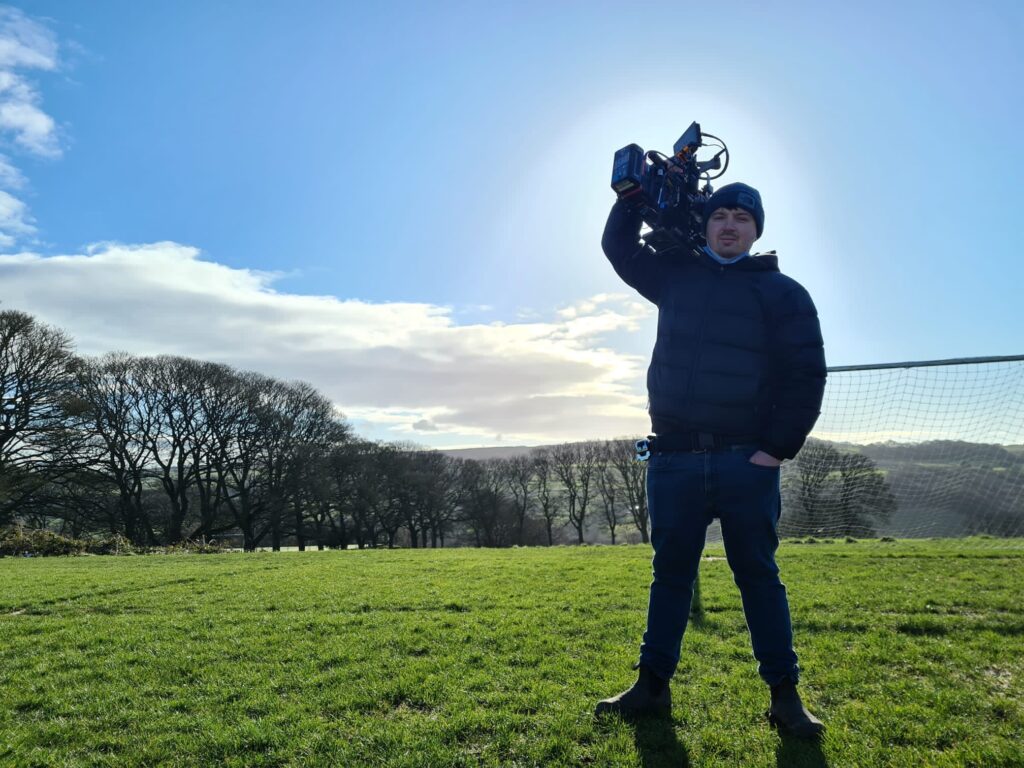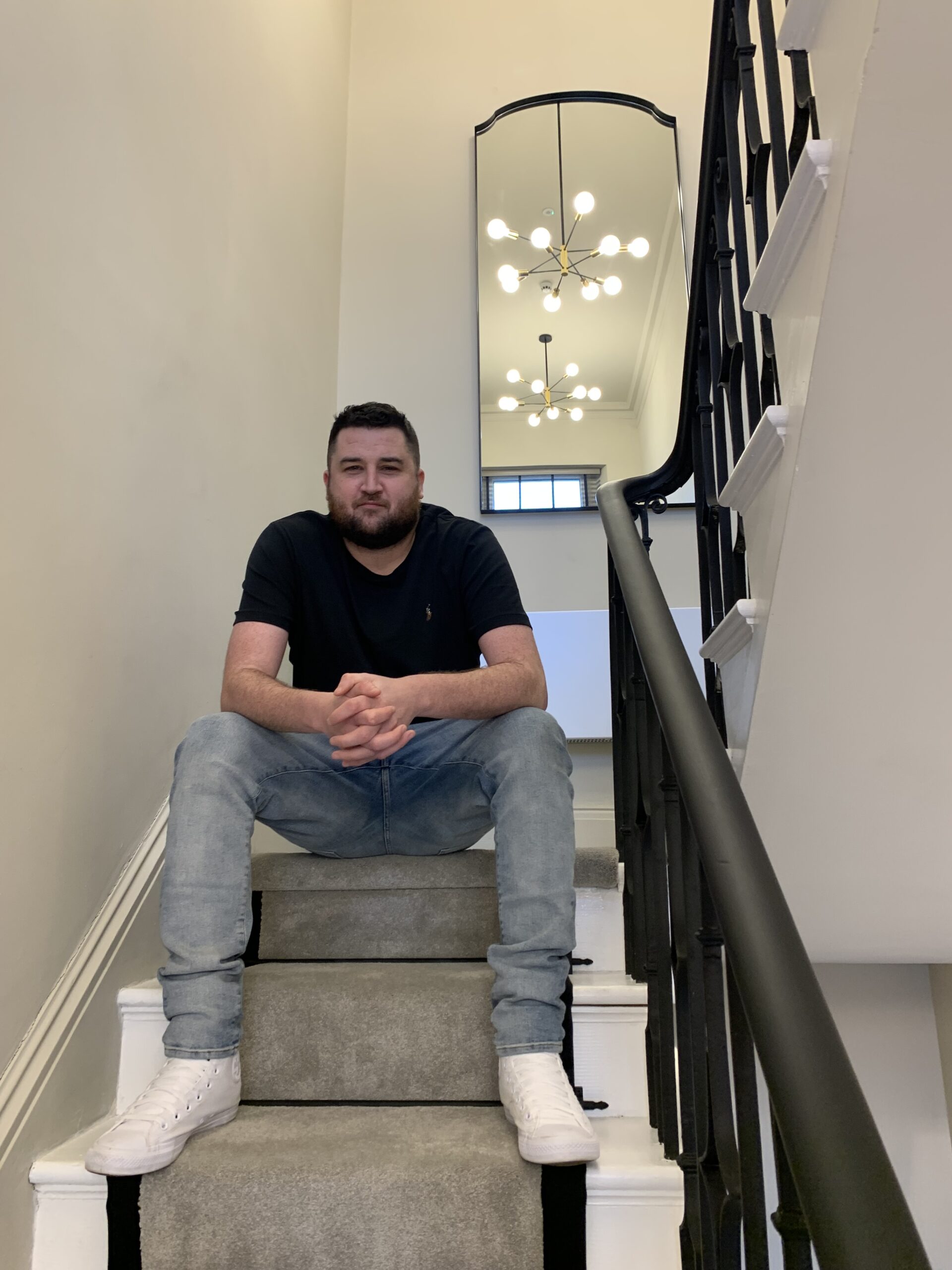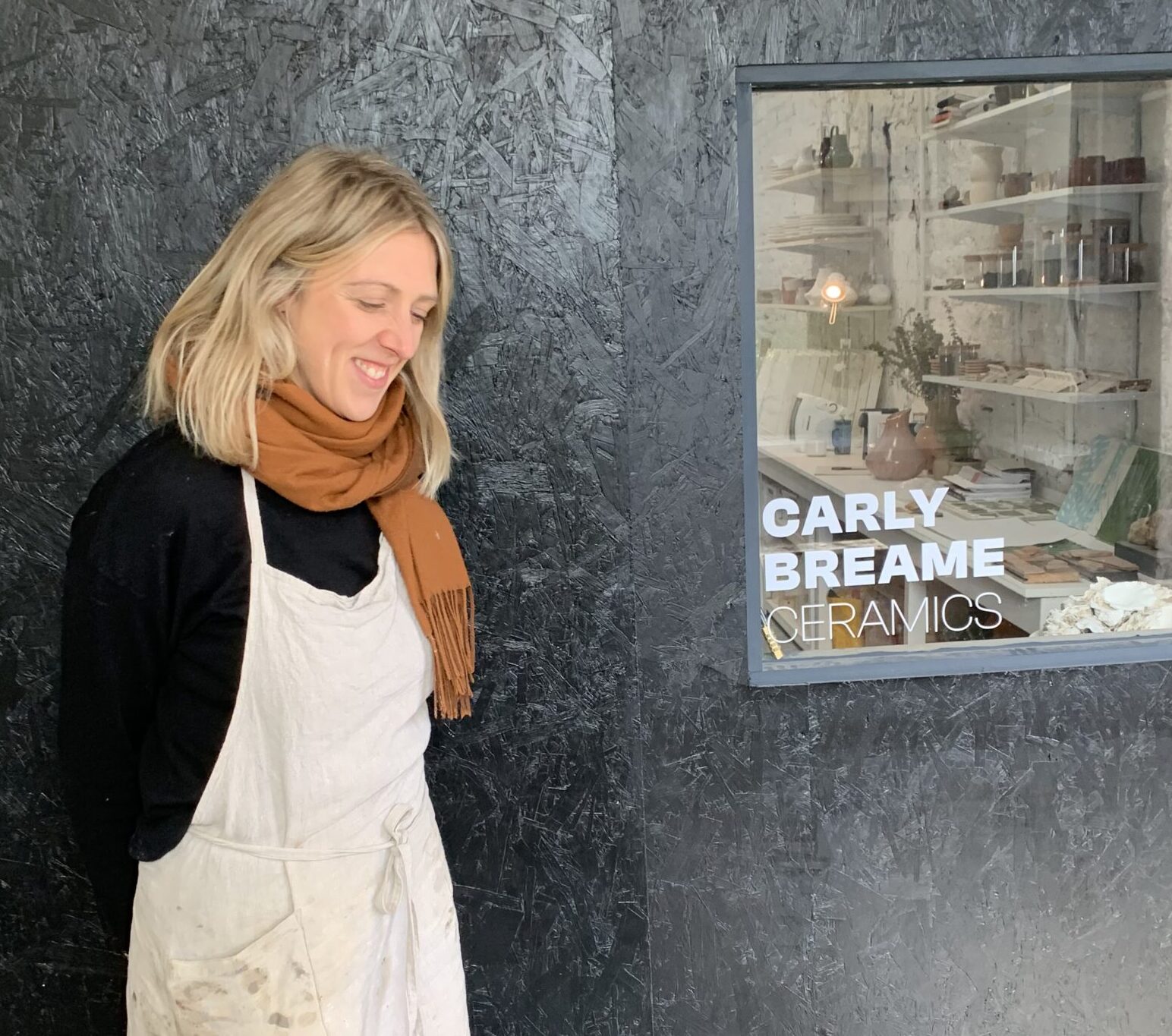Instagram: @eggroyal36
Introduction
Ethan Glanfield is a local of Elland, West Yorkshire the town I grew up in. A Focus puller and First assistant camera in TV, he has being at the epi-centre of the local TV series boom in Calderdale, West Yorkshire, working on the likes of Happy Valley, Ackley Bridge & Gentleman Jack to name a few.
Ethan, tell me about your role as a Focus Puller/First Assistant Camera and your responsibilities.
As a Focus Puller and First Assistant Camera, my primary responsibility is to work closely with the Director of Photography (DP), who is essentially my boss. The DP’s job is to construct the visual image you see on screen, handling everything from cameras and lighting to the movements within the shot, whether it’s drone footage, intimate conversations, or action scenes. They’re in charge of the overall image.
My role as a Focus Puller involves keeping everything in focus, which is done manually. Nowadays, we have the capability to move cameras, mount them on cars, and perform complex shots, making my job critical to ensure the image remains sharp. I view my role as guiding the audience on what to focus on, using visual storytelling. For example, if two people are talking and one has a suitcase, the camera might focus on the suitcase to direct the audience’s attention.
Working closely with the DP means I’m deeply involved in the artistic side of things. Initially, the job was very technical, but over time, I’ve moved up to a position that combines both technical skills and artistic sensibilities. The responsibility is significant because getting it wrong can waste a lot of time and resources. The job’s nature varies greatly, from very tight shots to expansive landscapes, and my role is to keep everything sharp and manage the team’s workflow and wellbeing.
How did you get into the industry? What skills or qualifications did you acquire?
I started with a three-year undergraduate degree in film and TV production at York St. John’s University. While not strictly necessary for my role, it provided a direction for my career, focusing on screenwriting and camera work. After university, I gained work experience on a local drama in Manchester called ‘Our Zoo,’ which offered insight into high-end BBC drama production.
My first official entry into the industry was through a camera trainee apprenticeship about 12 years ago. Around that time, the UK film industry was booming, especially in London, where I worked on big features and honed my craft amidst the industry’s shift from film to digital. Although I enjoyed London, I preferred living in Yorkshire, where the industry was also growing, particularly in Manchester and now in Yorkshire. The region offers diverse locations, from coastlines to cities, making it an ideal place for film production.
Have you always loved cinematography? What are your earliest cinema/TV memories? Favourite film?
Yes, I have always loved cinema. Growing up, going to the Rex Cinema in Elland was a significant part of my childhood. I remember queuing around the block to get in and the excitement of watching films there. As I grew older, I explored a wide range of films, going back to classics from the 1950s onwards.
I enjoy dramas with good writing and casting, like ‘Withnail & I,’ which is one of my favourites. Another impactful film for me is ’12 Years a Slave’ by Steve McQueen and Sean Bobbitt, which I watched in a cinema in Poland during a cinematography festival. The film’s artistic and emotional depth left a lasting impression. I also had the opportunity to meet and work with notable cinematographers like Bruno Delbonnel and Sean Bobbitt, whose works I greatly admire.
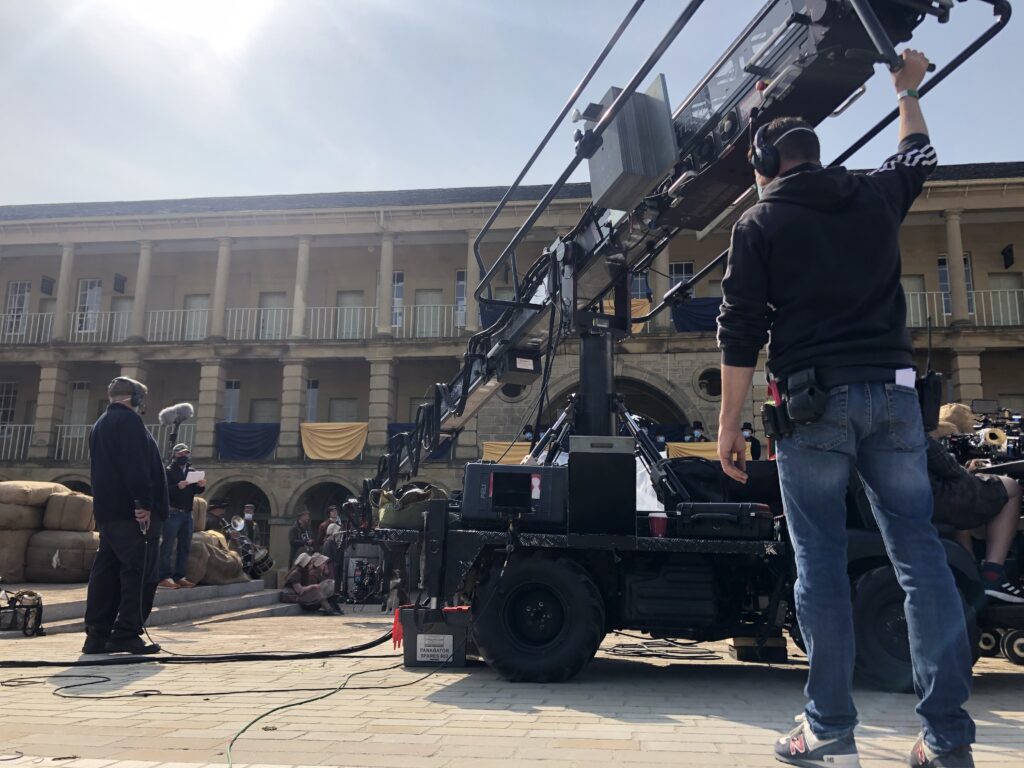
Describe a typical day on set, from preparation to wrap.
A typical day on set starts early. If we’re shooting during daylight hours, I arrive at 7 am to have breakfast and review the morning’s call sheet. By 8 am, we’re on set, either in a studio or on location. We set up the first scene, working out of articulated trucks. My goal is to have the camera ready for the DP within 15 minutes, though factors like weather can affect this.
The cast arrives to rehearse the scene, which could range from a single line to several pages of dialogue. The complexity varies, from intimate conversations to large-scale action sequences. Our days are long, typically from 8 am to 7 pm, but no two days are the same. One day, I might be working in the rain in Grassington for ‘All Creatures Great and Small,’ and the next, I could be filming in a completely different setting. The variety and challenges keep the job exciting.
How did the pandemic and industry strikes affect you, and how did you adapt?
The pandemic was incredibly challenging. In March 2020, I was fully booked for the year, but within two weeks, everything shut down. With no work and no government support, it was a tough time. Additionally, I had chosen to take four months off for the birth of my first child, further complicating our financial situation.
Post-pandemic, the industry rushed to catch up on lost time, leading to a busy period. However, the writer and actor strikes last year caused another major disruption, especially in London, where many big projects are filmed. The strikes completely shut down production, and only now are things starting to pick up again.
Personally, it’s been a hectic few years, with three children and the industry’s ups and downs. Despite the challenges, the demand for new content remains high, providing hope for the future. People always want to watch new shows and films, and the rise of streaming platforms has increased this demand.
How has filming locally impacted you, and what questions do people ask?
Filming locally has been fantastic. Working on projects like ‘Gentleman Jack’ and ‘Happy Valley’ has been incredibly rewarding, both personally and professionally. These shows highlight local history and culture, and it’s been great to be a part of them.
People often ask about what it’s like on set and about upcoming storylines, though I can’t divulge much. It’s exciting to work on projects that resonate with the local community and showcase our area’s unique charm.
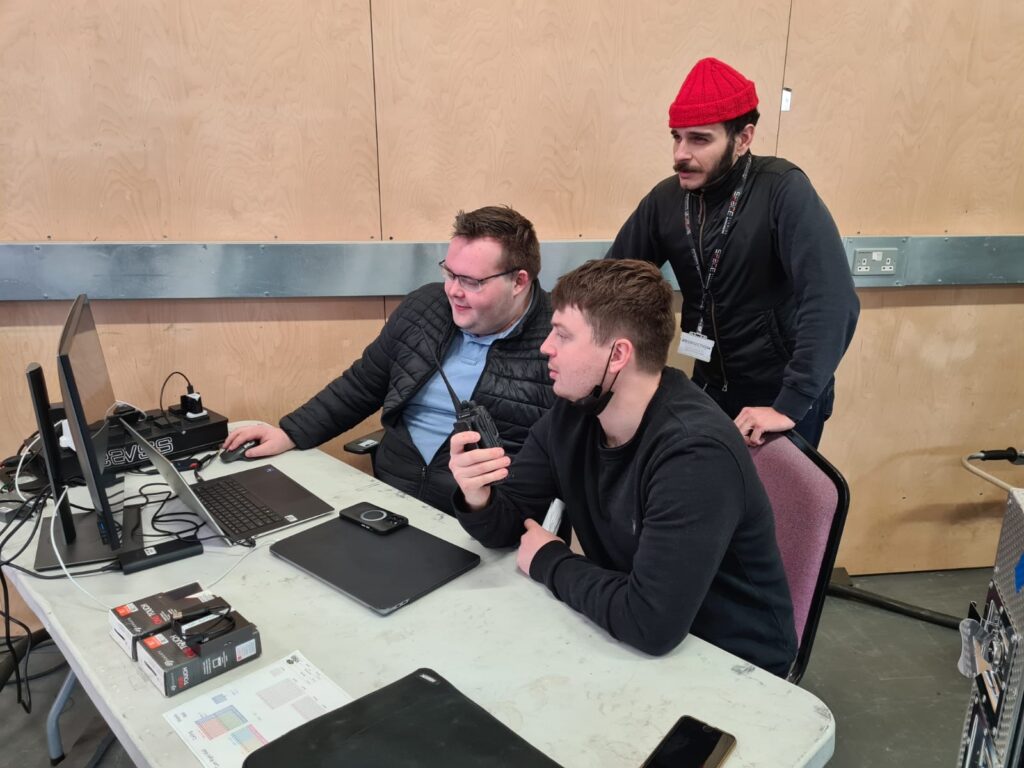
Thoughts on Sally Wainwright’s impact and others who have influenced you?
Sally Wainwright has had a tremendous impact on the local industry. Her detailed and accessible writing has attracted a massive fanbase, including in the USA. She’s also directed many of her projects, demonstrating a deep commitment to her work and to Halifax and Calderdale.
Her loyalty to the area has brought significant opportunities here. Working with cast members like Sarah Lancashire and Suranne Jones has been inspiring. Sarah Lancashire’s performance in ‘Happy Valley’ is unforgettable, and Suranne Jones brought Anne Lister to life in ‘Gentleman Jack.’
There’s also a strong community of skilled technicians in the north, proving that talent isn’t confined to London. Many of the best professionals I’ve worked with are from Yorkshire, and I owe a lot to people like Sally Wainwright for their contributions.
Current and future projects?
Currently, I’m involved in ‘All Creatures Great and Small,’ a beloved series that’s both light-hearted and serious. It’s set during World War 2, adding depth to its storyline. This series has a strong following in the US and has already been commissioned for another season.
I’m also looking forward to an exciting film project in Leeds this summer. Additionally, I worked on a new Channel 4 drama with the working title ‘Dance School,’ set to release this year. It’s always exciting to see how these projects turn out and the reception they receive.
Memorable experiences on set?
One significant moment was being promoted to Focus Puller on ‘Gentleman Jack’ series 2. The DP told me, “Ethan, it’s your time now,” and that was a pivotal opportunity that set my career on its current path.
Another memorable experience was the intense kitchen confrontation scene between Sarah Lancashire and James Norton in ‘Happy Valley’ season 3. Being involved in such a powerful moment was incredible.
Working with high-profile actors and on various sets offers many unique experiences. The variety and different locations are some of the best parts of the job, creating memorable moments regularly.
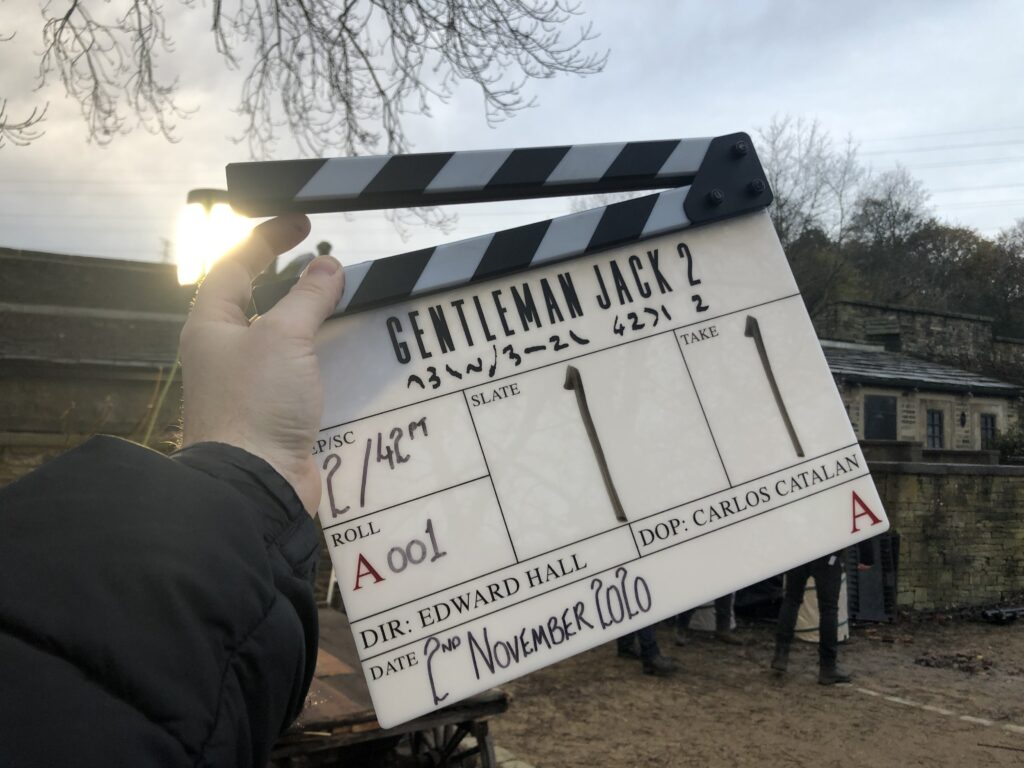
Positive and negative aspects of AI in film and cinema?
AI has the potential to impact jobs negatively, as automation can replace many roles. Pixar, for instance, has laid off long-time employees, raising concerns about the future of creative jobs.
However, AI can also make certain aspects of production more efficient, such as reducing the need for extras or replicating locations. While it might streamline some processes, it lacks the human touch essential for authentic emotion and creativity. Despite its potential, I believe people will always value the genuine human element in filmmaking.
What makes you proud to be from Yorkshire?
I am incredibly proud to be from Yorkshire. Working on local productions like ‘Happy Valley’ and ‘Gentleman Jack’ has been a highlight of my career. Seeing my name in the credits of these acclaimed shows is a source of immense pride, and it’s something that will remain part of my legacy.
Yorkshire offers a fantastic backdrop for filming, with its diverse landscapes and rich history. I am proud to contribute to projects that showcase the beauty and culture of our region. Being part of the local film movement and working on meaningful projects rooted in Yorkshire’s heritage is incredibly rewarding.
Even when I worked in London, I knew I wanted to return to Yorkshire to raise my family and continue my career here. I am dedicated to promoting the area and hope to bring more projects to Yorkshire in the future. My pride in Yorkshire runs deep, and I am always eager to showcase what makes it such a special place.
